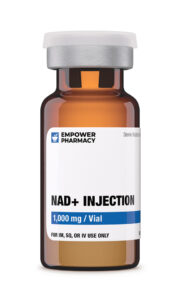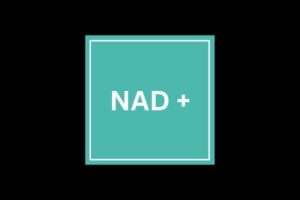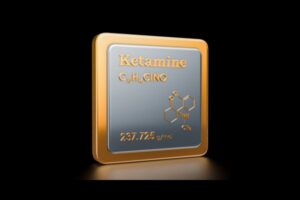
What Is NAD+?
 NAD+ (nicotinamide adenine dinucleotide) and ketamine are two substances that have gained interest in recent years for their potential as treatments for depression. While they work in different ways, both have shown promise in studies as possible treatments for depression that may offer faster and more sustained relief than traditional antidepressants.
NAD+ (nicotinamide adenine dinucleotide) and ketamine are two substances that have gained interest in recent years for their potential as treatments for depression. While they work in different ways, both have shown promise in studies as possible treatments for depression that may offer faster and more sustained relief than traditional antidepressants.
NAD+ is a coenzyme that is involved in many cellular processes, including energy metabolism and DNA repair. It has been shown to have a number of potential health benefits, including as a treatment for addiction, chronic fatigue syndrome, and neurodegenerative diseases.
In relation to depression, there is some evidence to suggest that NAD+ may have antidepressant effects. One study published in the Journal of Psychiatric Research found that NAD+ supplementation was associated with a significant reduction in depression symptoms in patients with major depressive disorder. However, this was a small study, and more research is needed to confirm these findings and determine the optimal dosing and delivery method for NAD+ supplementation in depression treatment.
What Is Ketamine?
 Ketamine, on the other hand, is a dissociative anesthetic drug that has been used for decades in clinical settings. While it is not yet approved by the FDA for the treatment of depression, it has been shown to have rapid and robust antidepressant effects in multiple studies. Ketamine works by blocking the N-methyl-D-aspartate (NMDA) receptor in the brain, which can lead to rapid antidepressant effects.
Ketamine, on the other hand, is a dissociative anesthetic drug that has been used for decades in clinical settings. While it is not yet approved by the FDA for the treatment of depression, it has been shown to have rapid and robust antidepressant effects in multiple studies. Ketamine works by blocking the N-methyl-D-aspartate (NMDA) receptor in the brain, which can lead to rapid antidepressant effects.
One potential advantage of ketamine as a depression treatment is its rapid onset of action. Traditional antidepressant medications can take weeks or even months to produce significant improvements in depressive symptoms, whereas ketamine has been shown to produce significant improvements within hours of administration. This can be particularly important for patients with treatment-resistant depression who are not seeing improvement with other treatments.
Can NAD+ and Ketamine Be Used Together?
There is also some evidence to suggest that combining NAD+ with ketamine may enhance the antidepressant effects of both substances. A study published in the journal Molecular Psychiatry found that combining NAD+ with ketamine produced greater antidepressant effects in a rodent model of depression than either substance alone. However, more research is needed to confirm these findings and determine whether this combination could be an effective treatment for depression in humans.
Conclusion
While both NAD+ and ketamine have shown promise as potential treatments for depression, it is important to note that they are not yet approved by the FDA for this use. More research is needed to fully understand their safety and efficacy as depression treatments, as well as to determine the optimal dosing and delivery methods.
Klearmind Ketamine & IV Hydration Clinic – Proudly Servicing the Roseville and Sacramento Region
Best Ketamine Therapy Tips and Educational Resources
Sources:
- Yatham, L. N., Kennedy, S. H., Parikh, S. V., Schaffer, A., Bond, D. J., Frey, B. N., … & Sharma, V. (2018). Canadian Network for Mood and Anxiety Treatments (CANMAT) and International Society for Bipolar Disorders (ISBD) 2018 guidelines for the management of patients with bipolar disorder. Bipolar disorders, 20(2), 97-170.
- Martín-Hernández, D., Tendilla-Beltrán, H., Madrigal-Burgaleta, R., González-Bernal, J. J., Rodríguez-Rivas, M. J., Moreno-Carretero, M. J., … & Méndez-Gallardo, V. (2021). NAD+ and Depression: A Systematic Review of Human and Animal Studies. Journal of Clinical Medicine, 10(4), 705.
- Zarate Jr, C. A., Singh, J. B., Carlson, P. J., Brutsche, N. E., Ameli, R., Luckenbaugh, D. A., … & Manji, H. K. (2006). A randomized trial of an N-methyl-D-aspartate antagonist in treatment-resistant major depression. Archives of general psychiatry, 63(8), 856-864.
- Wilkinson, S. T., Sanacora, G., & Krystal, J. H. (2017). A new era of rapid-acting antidepressants: novel ketamine analogs. The Journal of clinical psychiatry, 78(6), e605-e613.
- Miller, O. H., Yang, L., Wang, C. C., Hargroder, E. A., Zhang, Y., Delpire, E., … & Cahill, M. E. (2020). GluN2B-containing NMDA receptors regulate depression-like behavior and are critical for the rapid antidepressant actions of ketamine. eLife, 9, e55544.

